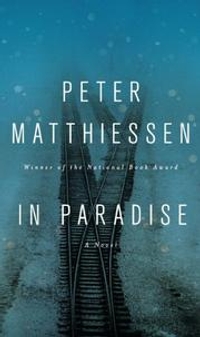Shadow Country
Peter Matthiessen, . . Modern Library, $35 (892pp) ISBN 978-0-679-64019-6
Matthiessen’s Watson trilogy is a touchstone of modern American literature, and yet, as the author writes in a foreword of this reworking, with the publication of
Florida sugarcane farmer and infamous murderer—the latter bit according to legend, of course—Edgar J. Watson is brought to life through marvelous eyewitness accounts and journal entries from friends, family and enemies alike. Book One (formerly
The second book takes place several decades after Watson’s murder and relates the travails of Watson’s son, Lucius, now a WWI veteran and scholar, as he tries to write a true account of his father’s life. Lucius journeys back to his childhood home in search of answers from the same people who saw his father killed. As he investigates the contradictory claims and rumors (like that of a “Watson Pay Day,” when Watson would murder his farmhands rather than pay them), he tracks down his long-lost brother, Robert, and learns a horrible family secret.
The final piece is perhaps the best, taking the form of Watson’s chilling memoir. Recounting his life, from the years of paternal abuse right up until his jaw-dropping perspective on the day of his death, Watson reveals his strained relationship with his children, a personality crisis with his scabrous alter ego and the truth behind the many myths. Where Watson was a magnificent character before, he comes across as nothing short of iconic here; it’s difficult to find another figure in American literature so thoroughly and convincingly portrayed. When Watson delivers his final line, it’s as close as most will come to witnessing a murder.
Reviewed on: 03/31/2008
Genre: Pick of the Week
Compact Disc - 978-1-4332-7896-9
Paperback - 912 pages - 978-0-85738-130-9
Pre-Recorded Audio Player - 978-1-4332-7901-0


